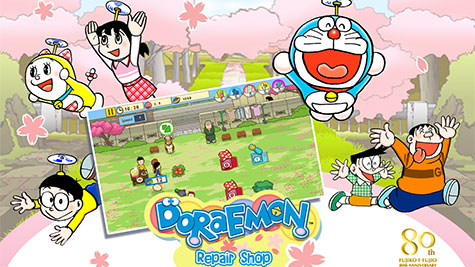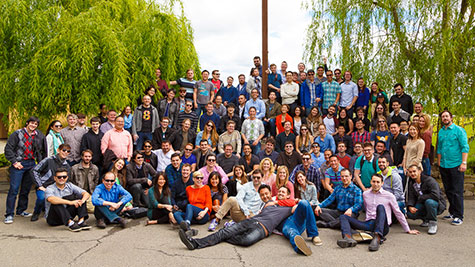Lauren Feldman moderated a panel during Casual Connect USA 2014 about the ethics of free-to-play. “In 2010, China passed a law to protect children from being on the internet too often,” she explained. “Children were dying while they were in rehab centers for internet addiction.” She directed questions to the panelists on gaming addiction and more during the session.
Lauren Feldman is an entertainment monetization expert and co-founder of MassIntent, an active learning system that combines business intelligence, predictive modeling, and consumer behavior to provide actionable product and strategy level insights in real time. She is also the managing director for Girls in Tech – San Francisco and a mobile games enthusiast.
“I Would Never Have Pictured Myself as an Entrepreneur”
Feldman did not always intend to become an entrepreneur, but found herself pushed in that direction when she moved from the creative side of games to product: suddenly, it was her job to ensure that her product was successful and profitable. She had to answer difficult and ambiguous questions: What was the balance between consumption and monetization? What goods should she sell, when, and to whom? But Feldman discovered some patterns in the chaos of data and product. She says, “I figured out that monetization wasn’t rocket science. If I could acquire enough users and balance the rate they consumed content with the frequency of ads and pricing of virtual goods, our games would make money. And they did.”
Eventually, Feldman decided to take the entrepreneurial leap and work as a monetization consultant. Of her first client, she says, “It was the first time that something was 100 percent mine, and I just had a feeling it was going to turn into something much bigger than a ‘gig’. Sometimes, we are put in a situation where we don’t have any other choice than to change something about our lives. I would never have pictured myself as an entrepreneur, but here I am.”
“Addicted To Data”
Feldman began to see an emerging pattern in her work: all of the questions she was answering required integrated large amounts of data from multiple sources. She says she became “addicted to data.” Generating revenue required constant monitoring and tweaking, not to mention regular arguments with Excel. But the biggest challenge came from the constant inquiries from managers, creative teams, and marketing. She couldn’t always answer their questions because she didn’t have the data or she didn’t have the time.
So simplicity became her new priority.
Feldman began by removing any data that did not directly correlate to her primary revenue sources. She changed her focus from collecting more data to collecting the “right data”. This approach produced cleaner data and better forecasts.
Seeing an opportunity to turn her approach into a product, Feldman co-founded MassIntent.
MassIntent uses the intelligence of machine learning and the benefits of the simplified model to identify weaknesses in business performance and forecast future monetization quickly and accurately while preserving the privacy of users’ information.
Unsurprisingly, Feldman believes data-driven decisions will be the next big trend in the games industry. Her focus is on helping businesses predict their users’ interests and actions to inform business decisions and maximize revenue. She emphasizes, “It will be more than just a collection or messaging service, it will be a new form of intelligence; one that is executed based on simplicity.”
Science, Sport, and Mobile Games
Feldman’s passion for games and competition extends to her personal life, as well. For the past five years, Feldman’s has competed in Brazilian Jiu-Jitsu, both for the physical and mental stimulation. And she says, “Intellectually, it’s probably the most challenging subject I’ve ever studied.”
For gaming, she plays anything mobile: casual, casino and hardcore, believing it is important to understand the fundamentals of what drives people to play. Her study of game design, behavioral psychology and decision making has shown that we are creatures driven by habit and similar motivations. She expects mobile to become the platform of the future, insisting there will be no other platforms.
Feldman’s interest in games is primarily mobile. She also studies game design and behaviorial psychology to understand the habits and motivations of players. She particularly appreciates the accessibility free to play (F2P) brings to gaming and says “everyone should be playing”. She believes the stigma surrounding the monetization strategy in F2P is unfounded. “We watch TV and wait for commercials; we don’t call it F2watch. We are accustomed to commercials. It’s the way it has always been.” So she expects F2P to be accepted the same way in the next generation. “You will get a free sample, but the whole cake will cost you.”











